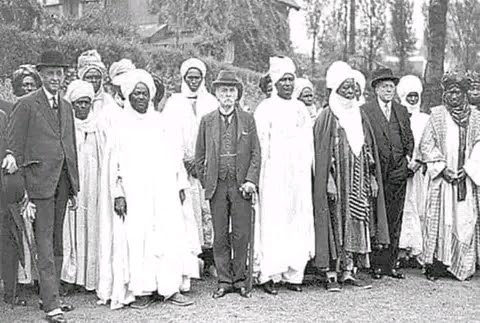Introduction
Nigeria, often referred to as the “Giant of Africa,” boasts a rich and complex history that spans from ancient civilizations to its current status as a major African power. Its journey through time is marked by diverse cultures, colonial struggles, and significant transformations. This article provides a detailed account of Nigeria’s historical evolution, offering insights into its ancient roots, colonial past, and contemporary developments.
Ancient and Pre-Colonial Nigeria
Early Settlements and Civilizations
Nigeria’s history begins with the emergence of early civilizations, each contributing to the region’s cultural and technological heritage:
- Nok Culture (1000 BC – 300 AD): The Nok civilization, located in central Nigeria, is renowned for its distinctive terracotta sculptures and early iron-smelting techniques. These artifacts reflect a sophisticated society with advanced skills in art and metallurgy.
- Igbo Ukwu Civilization (9th – 15th Century): The Igbo Ukwu civilization, situated in southeastern Nigeria, is noted for its elaborate bronze artifacts and complex social organization. The artifacts unearthed from this site highlight the Igbo Ukwu’s rich artistic and metallurgical achievements.
- Oyo Empire (11th – 19th Century): The Oyo Empire, one of the most powerful Yoruba kingdoms, established a highly organized administrative system and a formidable military presence in southwestern Nigeria. Its influence extended across West Africa, showcasing advanced governance and trade practices.
- Hausa City-States (11th – 19th Century): The Hausa city-states, including Kano, Katsina, and Zazzau, were prominent centers of trade and culture in northern Nigeria. Their strategic location along trans-Saharan trade routes facilitated cultural and economic exchanges with the wider world.
Trans-Saharan Trade
The trans-Saharan trade routes were crucial for Nigeria’s development, linking it to North Africa and the Mediterranean. This trade network brought wealth, cultural influences, and new technologies to the region, shaping its historical trajectory.
European Exploration and Colonialism
Early European Contacts
- Portuguese Exploration (15th Century): The Portuguese were among the first Europeans to explore Nigeria’s coastline, establishing trading posts and seeking access to the region’s resources. Their early presence marked the beginning of significant European influence in West Africa.
- British and Dutch Interests (17th – 19th Century): The British and Dutch also vied for control over Nigeria’s resources. British interest grew, leading to increased involvement in the region’s politics and trade.
Colonial Era
- British Colonization (19th Century): The British established control over Nigeria through treaties and military campaigns. The Royal Niger Company, led by Sir George Taubman Goldie, played a pivotal role in British expansion and acquisition of territory.
- Amalgamation (1914): In 1914, the British merged the Northern and Southern Protectorates and Lagos into a single colony, Nigeria, under Sir Frederick Lugard’s administration. This amalgamation laid the foundation for modern Nigeria’s political structure.
Path to Independence
Political Movements and Nationalism
- Early Nationalist Movements (1920s – 1940s): The struggle for independence began with early nationalist movements, such as the Nigerian National Democratic Party (NNDP) and the National Council of Nigeria and the Cameroons (NCNC). These organizations advocated for self-rule and political rights.
- Post-War Era (1940s – 1950s): Following World War II, demands for independence intensified. Prominent leaders like Nnamdi Azikiwe, Obafemi Awolowo, and Ahmadu Bello emerged as key figures in the push for Nigerian self-governance.
Independence and Early Challenges
- Independence (1960): Nigeria achieved independence from Britain on October 1, 1960. Nnamdi Azikiwe became the first President, and Sir Abubakar Tafawa Balewa was appointed Prime Minister. The newly independent nation faced the challenge of unifying its diverse ethnic and regional groups.
- First Republic (1960 – 1966): The First Republic experienced political instability and ethnic tensions. In January 1966, a military coup led by Major General Johnson Aguiyi-Ironsi overthrew the government, marking the beginning of a turbulent era.
Military Rule and Civil War
Military Regimes
- Biafra and Civil War (1967 – 1970): In May 1967, Lieutenant Colonel Odumegwu Ojukwu declared the secession of the Eastern Region as the Republic of Biafra. This declaration led to a devastating civil war that lasted until January 1970, resulting in significant loss of life and economic hardship.
- Subsequent Military Governments (1970s – 1990s): After the war, Nigeria experienced a series of military regimes, including those led by General Yakubu Gowon, General Murtala Mohammed, General Olusegun Obasanjo, General Muhammadu Buhari, and General Ibrahim Babangida. These regimes were marked by both development and controversy.
Transition to Democracy
Restoration of Civil Rule
- Democratic Transition (1999): In 1999, Nigeria transitioned to civilian rule with the election of Olusegun Obasanjo as President. This transition marked the beginning of the Fourth Republic, characterized by democratic governance and efforts to address long-standing issues.
- Economic and Political Reforms: The democratic era has seen various reforms aimed at improving governance, economic development, and combating corruption. Efforts to strengthen democratic institutions and promote economic growth have been central to Nigeria’s development strategy.

Contemporary Nigeria
Current Era
- Economic Growth and Challenges: Nigeria is Africa’s largest economy, driven by its oil exports and a growing service sector. Despite this growth, the country faces challenges such as economic inequality, corruption, and inadequate infrastructure.
- Security Issues: Nigeria has grappled with security challenges, including insurgencies by groups like Boko Haram in the northeast and separatist movements in various regions. Addressing these issues remains a priority for the government.
- Political Landscape: Recent years have seen ongoing political developments, including the presidency of Muhammadu Buhari, elected in 2015 and re-elected in 2019. The political landscape continues to evolve with new dynamics and emerging parties.
Social and Cultural Developments
- Cultural Renaissance: Nigeria’s cultural influence continues to expand globally, particularly through its music, film, and literature. Nollywood, Nigeria’s film industry, and Afrobeat music have gained international recognition, reflecting the country’s vibrant cultural heritage.
Conclusion
Nigeria’s history is a tapestry woven with ancient civilizations, colonial experiences, and modern challenges. From its early cultural achievements to its contemporary role as a major African power, Nigeria’s journey is marked by resilience, diversity, and significant transformations. Understanding this history provides valuable insights into the nation’s present dynamics and future potential.









